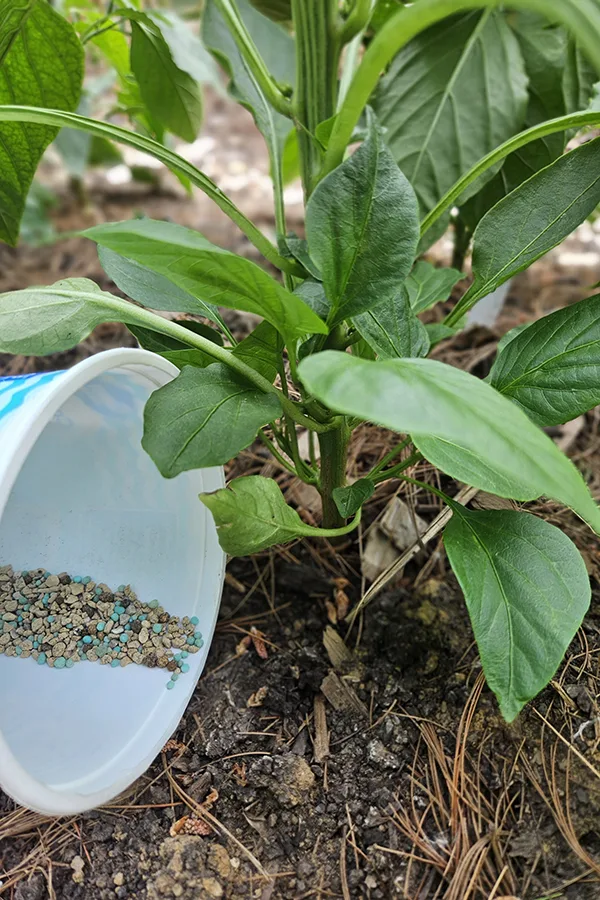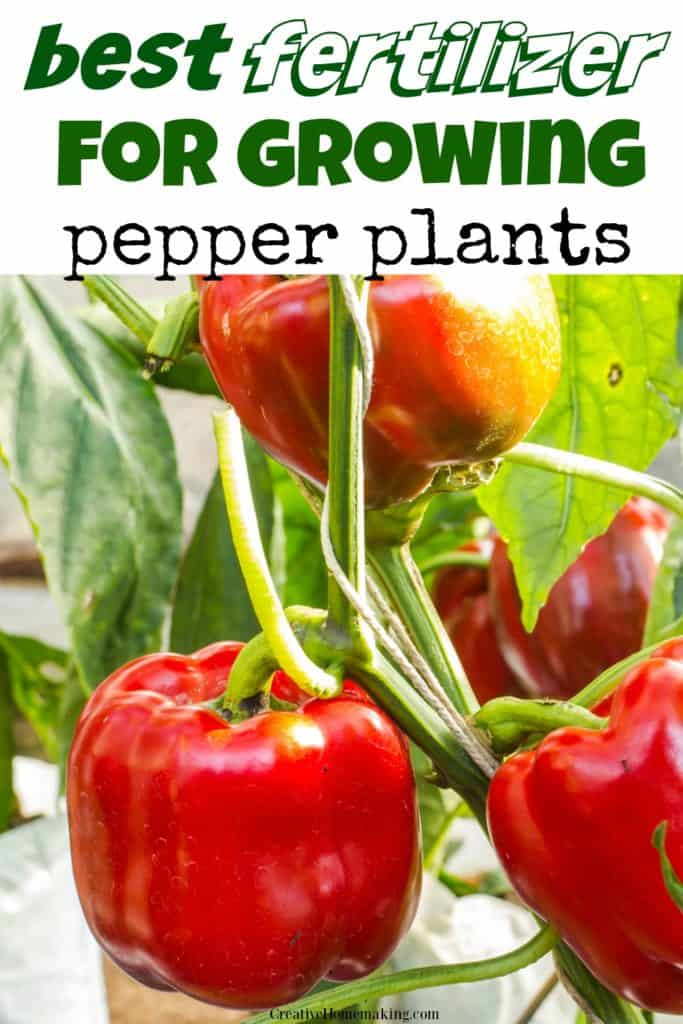Best Fertilizers for Peppers: Increase Development and Taste Naturally
Wiki Article
Organic Vs. Synthetic Fertilizers: Which Is Best for Nurturing Healthy Pepper Plants?
In the realm of nurturing healthy and balanced pepper plants, the selection in between synthetic and natural fertilizers stands as an essential decision with far-reaching effects. While both alternatives goal to offer vital nutrients to support plant development, the subtleties of their influence on the dirt, plant wellness, and the setting spark a dispute that echoes throughout the gardening area. Comprehending the distinctive benefits and prospective pitfalls of each fertilizer type is crucial for pepper growers seeking to enhance their returns while keeping a sustainable and eco-conscious approach.Benefits of Organic Fertilizers
Organic fertilizers offer a sustainable and environmentally-friendly approach to beneficial pepper plants, giving vital nutrients without making use of synthetic chemicals. These all-natural plant foods are obtained from organic sources such as compost, manure, bone meal, and algae, advertising dirt health and wellness and biodiversity. Unlike synthetic plant foods, natural choices release nutrients slowly, making certain a well balanced and stable supply for pepper plants to thrive.One substantial benefit of natural fertilizers is their ability to enhance soil structure and water retention. By improving soil health and wellness, natural fertilizers promote beneficial microbial activity, which assists in nutrient uptake by pepper plants. Additionally, organic plant foods lower the risk of chemical run-off, securing water resources from pollution and securing the setting.
Furthermore, organic fertilizers add to lasting soil fertility by promoting the development of valuable soil microorganisms. These microorganisms help break down natural issue, releasing nutrients in a type that is conveniently accessible to pepper plants. best fertilizers for peppers. By cultivating a healthy and balanced soil ecological community, organic plant foods support lasting pepper cultivation practices that profit both plants and the environment
Disadvantages of Synthetic Fertilizers
Artificial plant foods, in contrast to their natural counterparts, pose various drawbacks when made use of to nourish pepper plants, impacting both plant health and wellness and ecological sustainability. One significant disadvantage of synthetic fertilizers is their tendency to seep nutrients from the soil promptly.Furthermore, the overuse of artificial fertilizers can contribute to water air pollution. Excess fertilizers not soaked up by plants can remove right into water bodies, resulting in eutrophication, where algae flowers diminish oxygen degrees in the water, harming water life. Synthetic fertilizers are generally derived from non-renewable resources, such as fossil fuels, adding to carbon exhausts and environmental deterioration throughout their production.
Nutrient Absorption Comparison
When comparing synthetic and organic plant foods in terms of nutrient absorption, organic plant foods have the benefit of giving a much more balanced and slow-release resource of nutrients. Organic plant foods contain a variety of macro and micronutrients that are not only valuable for the plants but also promote healthy soil microbial activity, which aids in nutrient uptake.Moreover, natural plant foods boost dirt framework and water retention capability, enabling pepper plants to accessibility nutrients extra successfully. This improved soil high quality promotes origin development, allowing far better nutrient absorption. Synthetic fertilizers, although initially increasing plant development as a result of their high nutrient concentrations, might prevent long-term nutrient absorption by degrading soil health over time.
Environmental Impact Considerations

On the other hand, synthetic plant foods, although frequently more concentrated and promptly readily available to plants, can have detrimental results on the atmosphere if not used appropriately (best fertilizers for peppers). Their production calls for high energy inputs, leading to greenhouse gas emissions and adding to climate modification. Moreover, the drainage of excess artificial fertilizers can infect water resources, leading to eutrophication and damaging marine ecosystems.
Best Plant Food Practices for Peppers
To attain this, it is crucial to follow best fertilizer practices customized to the specific needs of pepper plants. One crucial practice is to perform a dirt test before applying any fertilizers.One more important method is to feed pepper plants at the ideal time. Typically, peppers gain from getting fertilizer at planting and after that again when they start to blossom. Over-fertilizing can bring about vitamins and mineral imbalances and hurt the plants, so it is essential to adhere to recommended application rates.
In addition, selecting a well balanced plant food with an NPK ratio that suits pepper plants' requirements is basic. Eventually, combining artificial and natural fertilizers deliberately can assist support healthy and balanced pepper plants click this link while minimizing ecological effect.
Verdict

Organic plant foods offer an environmentally-friendly and sustainable technique to nourishing pepper plants, supplying essential nutrients without the use of artificial chemicals. Unlike artificial fertilizers, natural alternatives release nutrients gradually, making certain a well balanced and constant supply for pepper plants to thrive.
Synthetic plant foods, in comparison to their natural equivalents, pose different downsides when made use that site of to nurture pepper plants, impacting both plant health and environmental sustainability. When comparing artificial and organic fertilizers in terms of nutrient absorption, organic fertilizers have the advantage of supplying an extra well balanced and slow-release source of nutrients.In addition, organic fertilizers improve dirt structure and water retention ability, allowing pepper plants to access nutrients much more effectively.
Report this wiki page